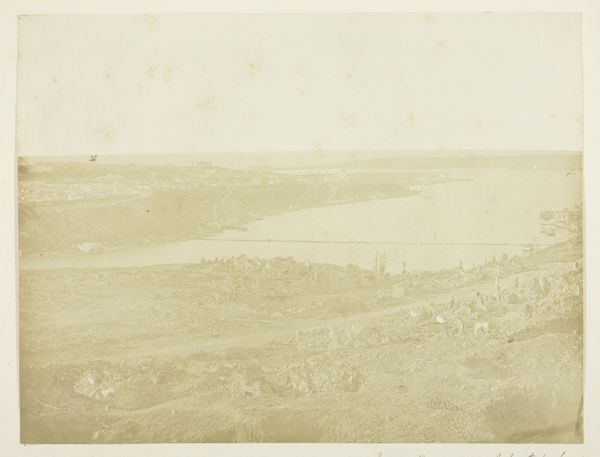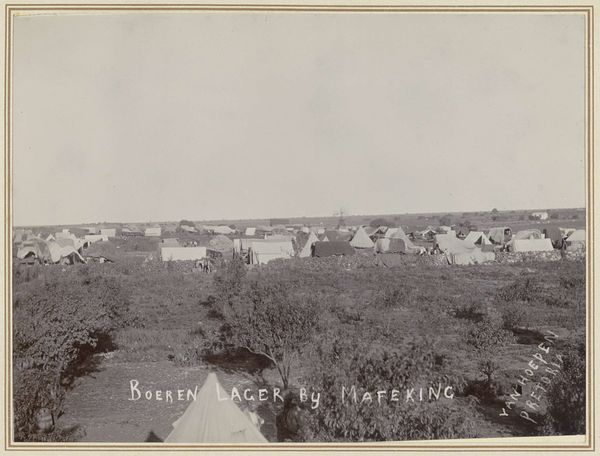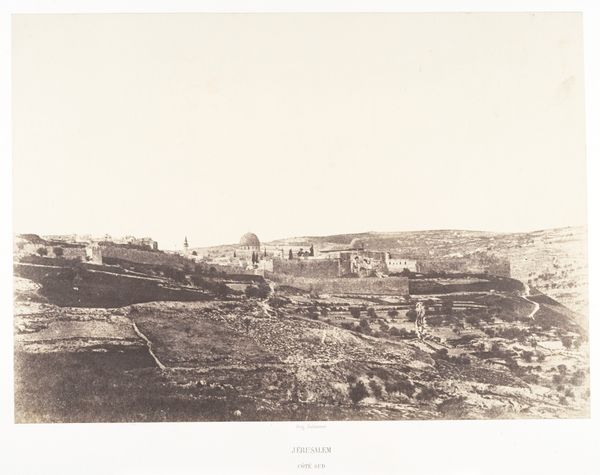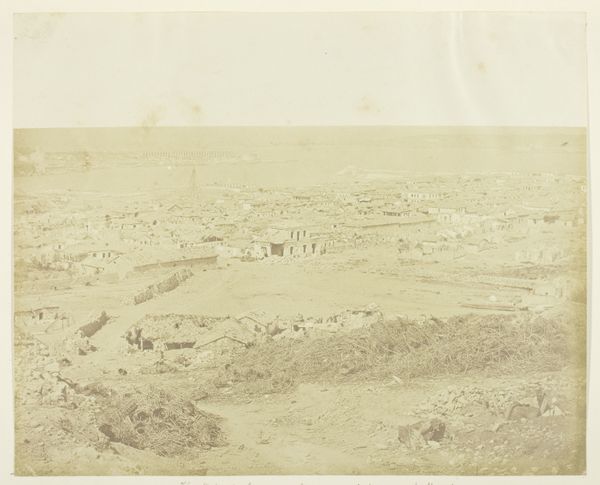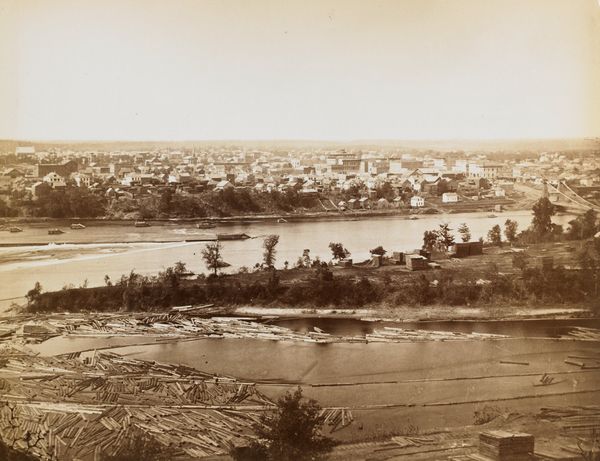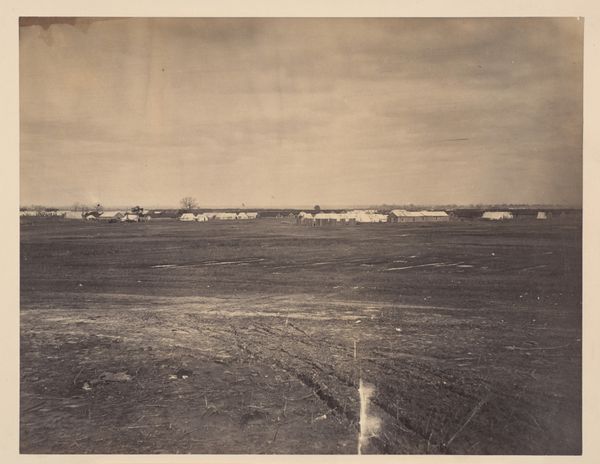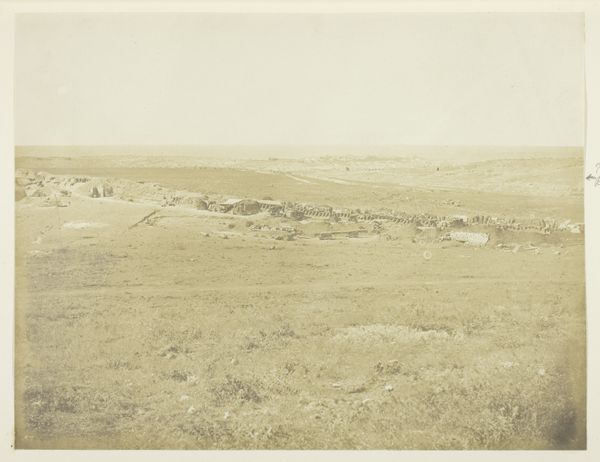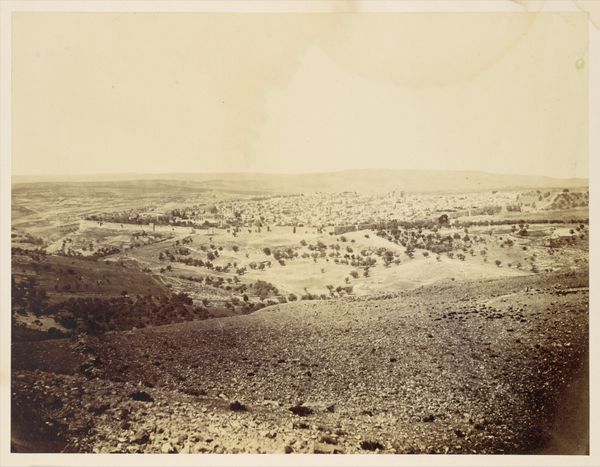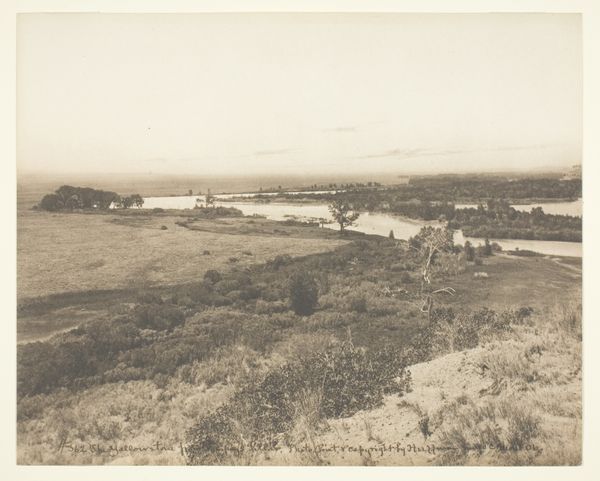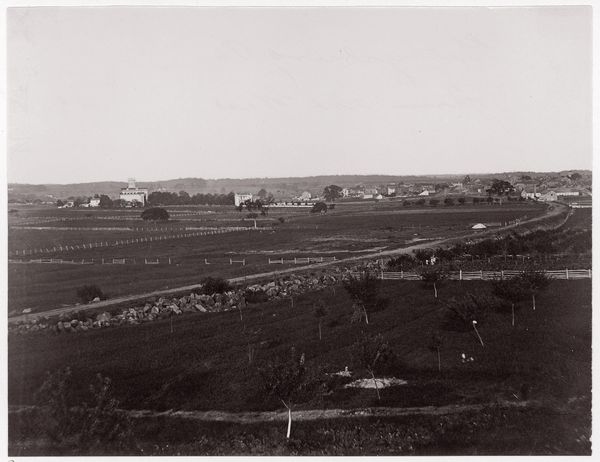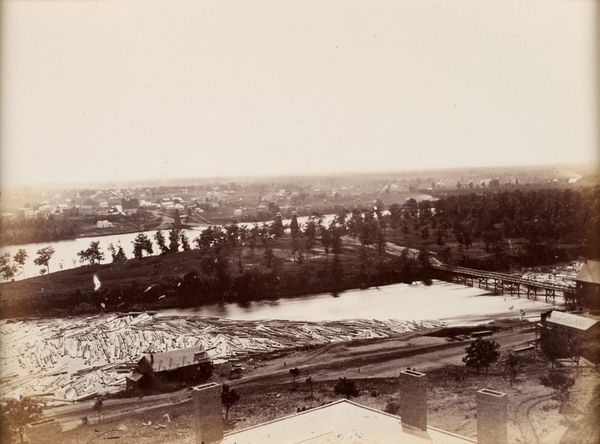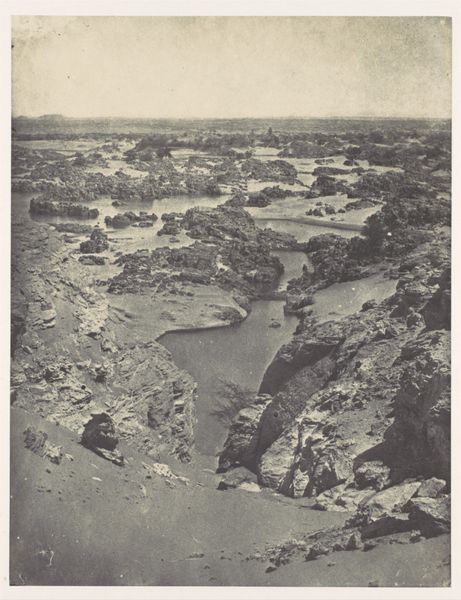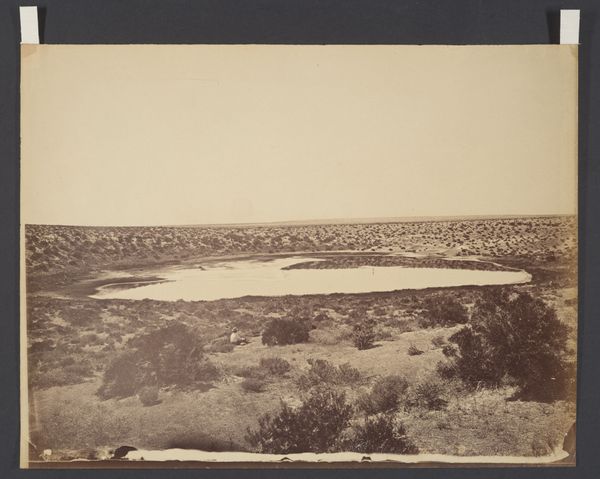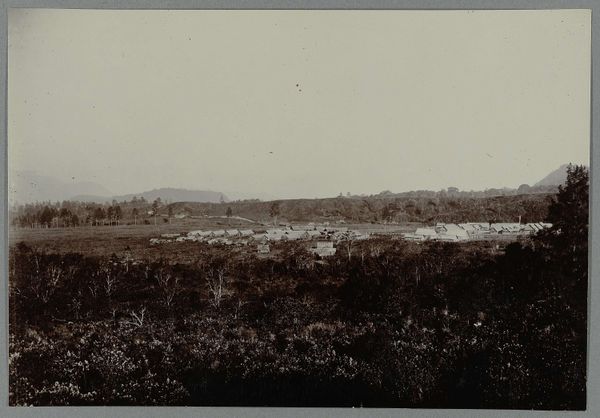![[View Across Rappahannock River to Fredericksburg, Virginia] by Andrew Joseph Russell](/_next/image?url=https%3A%2F%2Fd2w8kbdekdi1gv.cloudfront.net%2FeyJidWNrZXQiOiAiYXJ0ZXJhLWltYWdlcy1idWNrZXQiLCAia2V5IjogImFydHdvcmtzLzRlYWVmMGYwLWQzZTQtNDQ1Ni05YjYwLTUyZmY3ZDFiZTYwMC80ZWFlZjBmMC1kM2U0LTQ0NTYtOWI2MC01MmZmN2QxYmU2MDBfZnVsbC5qcGciLCAiZWRpdHMiOiB7InJlc2l6ZSI6IHsid2lkdGgiOiAxOTIwLCAiaGVpZ2h0IjogMTkyMCwgImZpdCI6ICJpbnNpZGUifX19&w=3840&q=75)
[View Across Rappahannock River to Fredericksburg, Virginia] 1863
0:00
0:00
photography, gelatin-silver-print
#
war
#
landscape
#
river
#
outdoor photograph
#
nature
#
outdoor photography
#
photography
#
gelatin-silver-print
#
monochrome photography
#
history-painting
#
realism
#
monochrome
Copyright: Public Domain
Andrew Joseph Russell made this photograph of Fredericksburg, Virginia using the collodion process. It was a cutting-edge technology at the time. Wet plate collodion was quite laborious. First, you had to sensitize a glass plate with chemicals, then immediately expose and develop it. The process demanded considerable skill. But it allowed for the inexpensive creation of multiple prints from a single negative. This helped to democratize image making in the mid-19th century. The view of Fredericksburg, a town devastated by the Civil War, gains significance when you consider the process. Photography played a crucial role in documenting the war. It also served as a tool for shaping public perception and influencing the narrative of that conflict. The photograph becomes a poignant record of a place and time marked by division and upheaval. It reminds us how technological advancements in image making intertwine with pivotal moments in history. This challenges conventional understandings of fine art versus documentary craft.
Comments
No comments
Be the first to comment and join the conversation on the ultimate creative platform.
